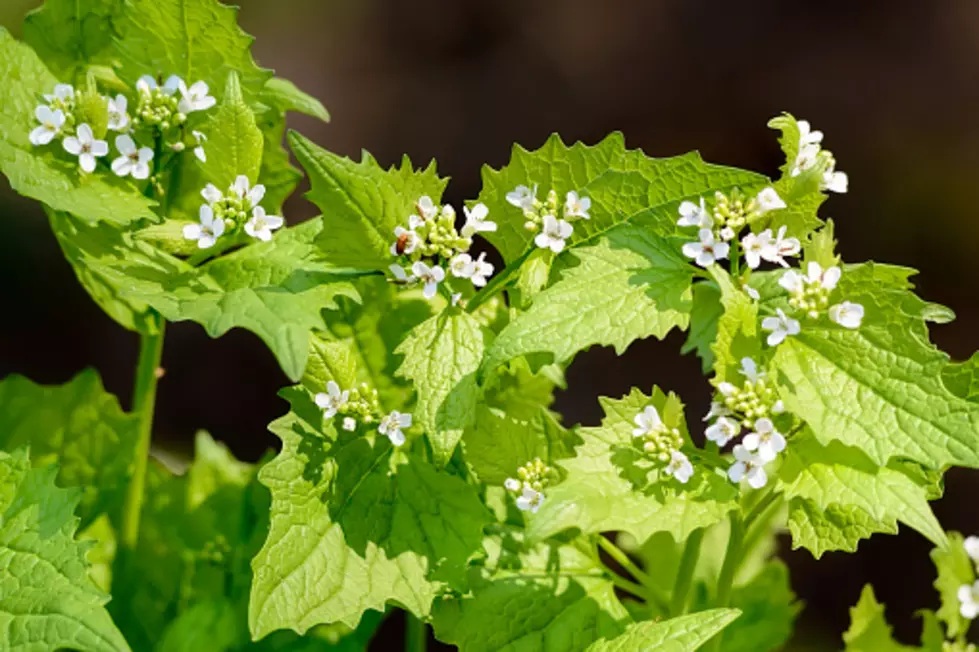
Garlic Mustard Is Bad For Lawns But A Tiny Bug May Take Care Of It
Garlic Mustard is not as tasty as it sounds but it is one of Michigan's most common invasive plants, there is a tiny bug that can help with this problem.

What Is A Garlic Mustard Plant?
Garlic mustard was originally brought to America to use as an herb for cooking and medicinal purposes in the 1800s but has spread all across Michigan and has become a problem in several areas of the state.
The leaves on the garlic mustard plant are slightly wrinkled and when you dry and crush them up they smell just like garlic. The garlic mustard plant only flowers every other year but the seeds they drop are where the problem really is.
Garlic mustard is a hearty plant that can self-fertilize and in no time take over a forest floor. Garlic mustard has a negative impact on our ecosystem when it crowds out other plants.
New Tiny Bug Causing Damage to Garlic Mustard Plants
Garlic mustard aphids are small sap-sucking insects and can be the most destructive insect pests on farmed plants. The aphids deposit a type of honeydew that causes mold to grow on plants.
The garlic mustard aphid was spotted a year ago and they have been causing signs of damage to the garlic mustard plant. Scientists are currently monitoring these bugs to see if they can eventually kill the garlic mustard plant.
How To Get Rid of Garlic Mustard Plants
Until scientists can figure out if the garlic mustard aphid is killing off the garlic mustard plant, the only way to deal with them in the meantime is to pull them up yourself.
According to WOOD-TV, Rebecah Troutman, a biologist with the Holden Forests & Gardens says it can take years to get rid of garlic mustard completely. Seeds from the plant can last in the soil for seven to 10 years.
Try to pull these garlic mustard plants in April and May and check each year until they do not come back. Even then it is important to back a look each year since their seeds can last in the soil so long. Pull these plants up by the root and that will get you started.
LOOK: 40 Discontinued & Special Edition Kellogg's Cereals
12 'Salads' That You'll Find at a Midwestern Get-Together [LIST]
More From Magic 104.9










